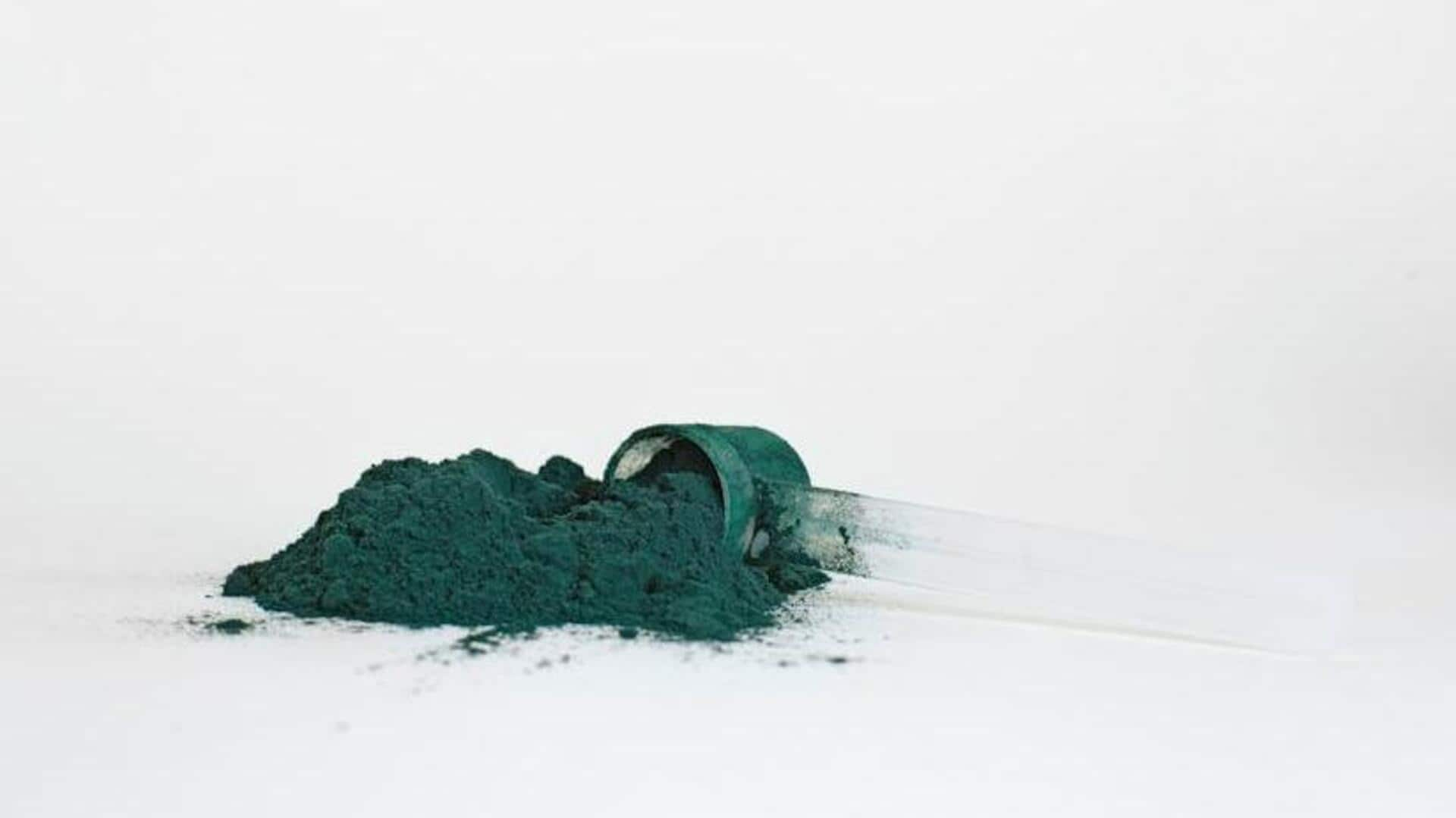
Unveiling the power of spirulina
What's the story
Spirulina, recognized as a type of blue-green algae, has surged in popularity as a superfood due to its remarkable nutritional profile. It is cultivated across the globe and utilized both as a dietary supplement and as a whole food. This article delves into the myriad benefits and applications of spirulina, underscoring its status as a nutritional powerhouse.
Protein content
A rich source of protein
Spirulina boasts a protein content of about 60%, positioning it as one of the most potent plant-based protein sources available. This feature is especially advantageous for vegetarians and vegans in search of high-quality protein alternatives. Impressively, spirulina's protein encompasses all nine essential amino acids, affirming its status as a complete protein source. This composition is crucial for supporting various bodily functions and muscle repair.
Nutrient density
Packed with vitamins and minerals
Apart from being an excellent source of protein, spirulina is rich in vitamins A, C, E, and B vitamins including B1 (thiamine), B2 (riboflavin), B3 (niacin), B6 (pyridoxine), and B9 (folic acid). It also provides essential minerals such as iron, magnesium, potassium, and calcium. Just one tablespoon of spirulina can provide 21% of the Recommended Dietary Allowance (RDA) for iron for adults.
Health benefits
Antioxidant and anti-inflammatory properties
Spirulina harbors phycocyanin, a potent antioxidant that not only bestows upon it its unique blue-green color but also vigorously combats free radicals within the body. This antioxidant action, when paired with spirulina's anti-inflammatory properties, significantly aids in reducing oxidative stress. Such effects are instrumental in potentially lowering the risk of chronic diseases, including heart disease, underscoring spirulina's beneficial impact on health.
Immunity boosting
Supports immune function
Spirulina's nutritional components play a pivotal role in bolstering the immune system. It enhances antibody production and boosts infection-fighting proteins present in saliva. With regular intake, spirulina significantly fortifies the body's defenses against various infections. This reinforcement of the immune system is crucial for maintaining overall health and preventing illness, making spirulina a valuable addition to one's diet for immune support.
Versatility
Easy to incorporate into your diet
Spirulina can be added to smoothies, juices, salads, or taken as tablets or capsules for those who prefer not to taste it. Its versatility makes incorporating it into any diet plan easy. Starting with small doses, like one teaspoon per day, is recommended to avoid digestive discomfort. This method ensures a gentle introduction of spirulina into your diet.